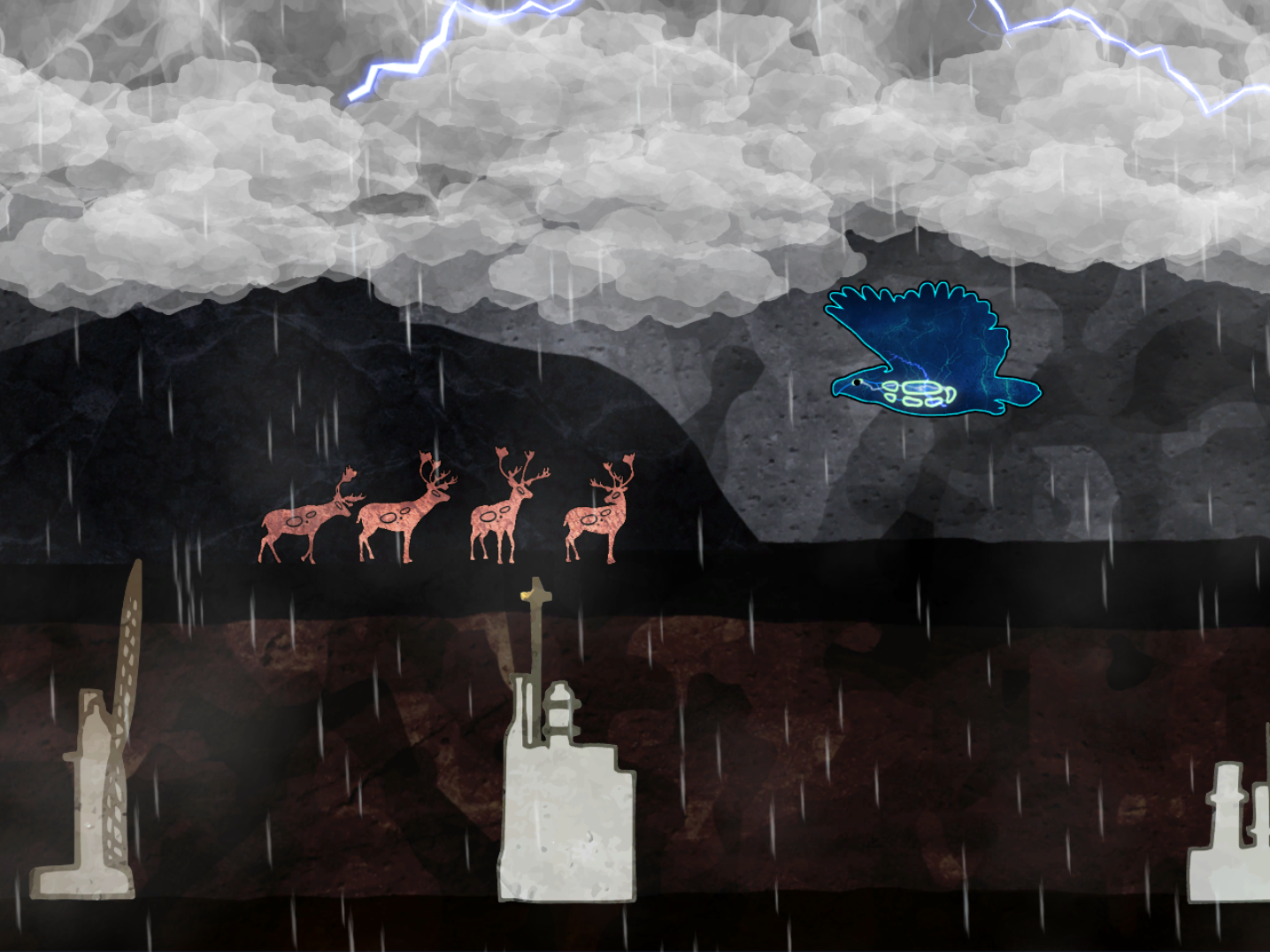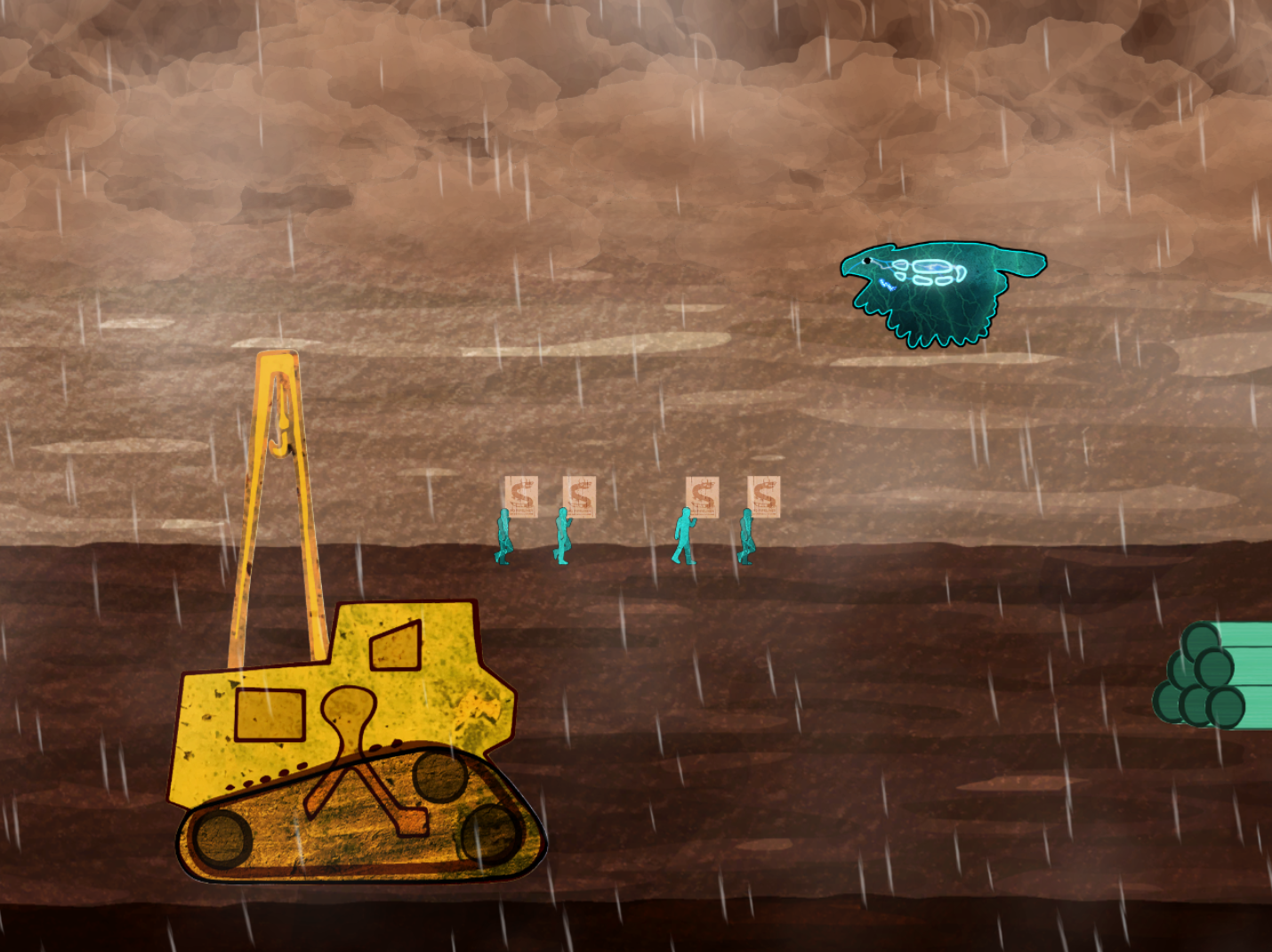Destroy Oil Pipelines as a Thunderbird in this New Video Game
Credit to Author: Jacob Dubé| Date: Thu, 19 Oct 2017 13:00:00 +0000
In Thunderbird Strike, a new side-scrolling game that launches at the ImagineNATIVE festival this week in Toronto, players can control a thunderbird—a symbol in several Indigenous cultures—that destroys as much of the oil industry’s machinery and pipelines as it possibly can. And it’s so satisfying.
The game was created by Elizabeth LaPensée, an Anishinaabe, Métis, and Irish games developer, and assistant professor of media and information at Michigan State University. She told me in an interview that she wanted to create a game where Indigenous players could reclaim some agency around oil pipelines, even if through a video game.
“Especially when we’re talking in the context of pipelines, and the oil industry, there are some wins we can have. But ultimately protectors will be pushed out and the processes are going to move forward. It’s happening with mining and it’s happening with pipelines,” LaPensée told me over the phone.
A scene from Thunderbird Strike. GIF: Elizabeth LaPensée
The game is a blast to play. You control a big greenish-blue thunderbird—hand-drawn and animated in what LaPensée calls a traditional woodland style—that flies around the screen and charges up electricity. Players can use its thunder to destroy vehicles and construction sites, or they can use it to restore the local wolf, caribou, and buffalo populations. Since it’s impossible to lose the game—only garner higher and higher scores—LaPensée said players can experience it however they want. “The game doesn’t judge you,” she said.
Accompanied by music from Casey Koyczan, who also does the Street-Fighter-II-esque voiceover work, the three levels depict Alberta’s oil sands, then the prairies of Saskatchewan (where pipelines are currently being built), before finally reaching the Straits of Mackinac, the waterway that connects Lake Huron and Lake Michigan.
When players reach the final level, they fight the Enbridge Line 5 pipeline under the Straits of Mackinac, now transformed into a huge metallic snake.

Though the game illustrates concerns about pipelines as a whole, LaPensée said Thunderbird Strike is focused on advocating for the removal of the controversial Enbridge Line 5 pipeline specifically. Motherboard previously reported that if the 64-year-old pipeline were to rupture, it would spill 1.5 million gallons of oil into the water.
“That needs to be discontinued,” she said. “Any kind of leakage there would cause great destruction.”
LaPensée has been making games for years. When she was a teenager, she created an Indigenous version of Super Mario Bros. by changing Mario’s sprite to portray an Indigenous character, and added a thunderbird power-up in the backend of an emulated version of the NES game. She said she was excited to make sprite sheets again for Thunderbird Strike—she drew and scanned all the assets and backgrounds for the game herself and animated the cutscenes.
Read More: The Dakota Access Water Protectors Were Leaving—Then Came Trump’s Order
The symbolism of the thunderbird and the snake are prevalent in Anishinaabe culture, LaPensée said. According to the story, thunderbirds were a clan of people who were asked to return to the waters because the lightning from their eyes would kill others.
GIF: Elizabeth LaPensée
LaPensée said it’s a representation of people who are very intense and quick to action. But now, the the thunderbird is being used as a symbol in protests. It has also been represented through art by Isaac Murdoch and Dylan Miner.
“This is coming back,” she said. “People are asking for the thunderbirds to return.”
As for the symbolism of the snake, the story goes, “there will come a time where there will be a black snake, and this snake will be unending in its hunger and it will swallow the land and the people whole,” LaPensée said.
That story symbolizes the effects of colonialism and human greed. It’s now being used to represent the pipelines, she said.

The game is free and available primarily on mobile because LaPensée wants it to be accessible for people who might not have a home console, or even a steady internet connection. “It does make a difference,” she said. “Asking someone to pay 99 cents for a game can be a barrier.”
Thunderbird Strike doesn’t have any text or explicit messages in the game, but LaPensée said she hopes it will encourage more people to look into the effects of pipelines and learn for themselves.
Get six of our favorite Motherboard stories every day by signing up for our newsletter.